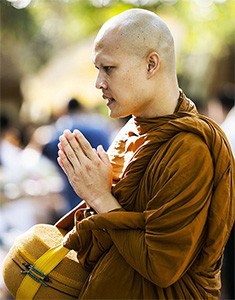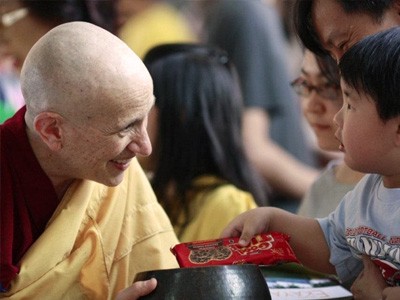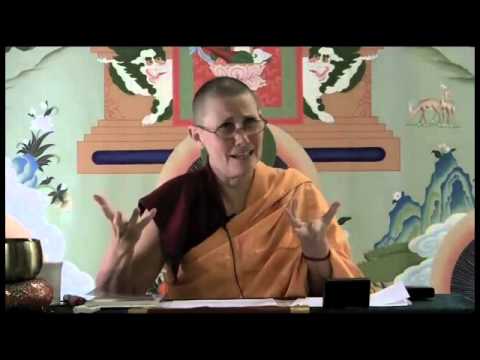Monastic aspiration

Below is an excerpt from a letter written by Venerable Thubten Chodron to a young man aspiring to become a monastic, which may be of benefit to others considering monastic life as well.
The aspiration for monastic life is really the aspiration to live a life dedicated to increasing our capacity to be of long-term benefit to others and thus to explore the nature of reality in order to purify our mind and be of the greatest benefit. That is, monastic life is a “tool” we use on the path; it is not an end to itself. The point is not just to receive ordination; it is to become fully awakened for the benefit of all. We know that to accomplish this we want to live in ethical conduct (precepts), curtail our attachment and distractions through a monastic lifestyle, and make a commitment to fulfill our spiritual aspirations as best as we can.
One part of preparing for ordination involves cultivating our motivation, and to do this, understanding the Buddhist worldview and having an aspiration to be free from cyclic existence are essential. This is the foundation motivation for ordaining; bodhicitta is like dessert. To generate this motivation, study and practice the Lamrim, the stages of the path to awakening.
Then the questions come: what type of Buddhist practice resonates with me and who do I want to guide me on the path? The answers to these two usually come together: we meet a teacher who instructs us in practice, and our connection with both clicks. This doesn’t have to be something dramatic. In my case, what the teachers said made sense and when I practiced it, it helped me. So I kept going back, and eventually after some time, I realized these were my teachers. In Tibetan Buddhism, we can have more than one teacher and we do many different kinds of practice, but serious practitioners (especially monastics) start with staying close to a teacher and a community so that we can receive the teachings, training, and support for our practice. That way we test things out before making a long-term commitment.
Rather than rush into ordination, it’s advisable to stay in or near the community you’re thinking of joining before ordaining. When we don’t know people well it’s easy to see them and the community as “perfect” and create all sorts of false expectations of them. When you’re around them for a while, you begin to see their good qualities and their weaknesses. You also begin to release the unrealistic expectations of gaining quick realizations yourself, and get a better idea of the things in yourself that you need to work on.
Cherish your virtuous aspirations and respect that part of yourself. It is wise to share these aspirations with people who will understand and support you in nurturing your virtuous qualities and aspirations.
Venerable Thubten Chodron
Venerable Chodron emphasizes the practical application of Buddha’s teachings in our daily lives and is especially skilled at explaining them in ways easily understood and practiced by Westerners. She is well known for her warm, humorous, and lucid teachings. She was ordained as a Buddhist nun in 1977 by Kyabje Ling Rinpoche in Dharamsala, India, and in 1986 she received bhikshuni (full) ordination in Taiwan. Read her full bio.


